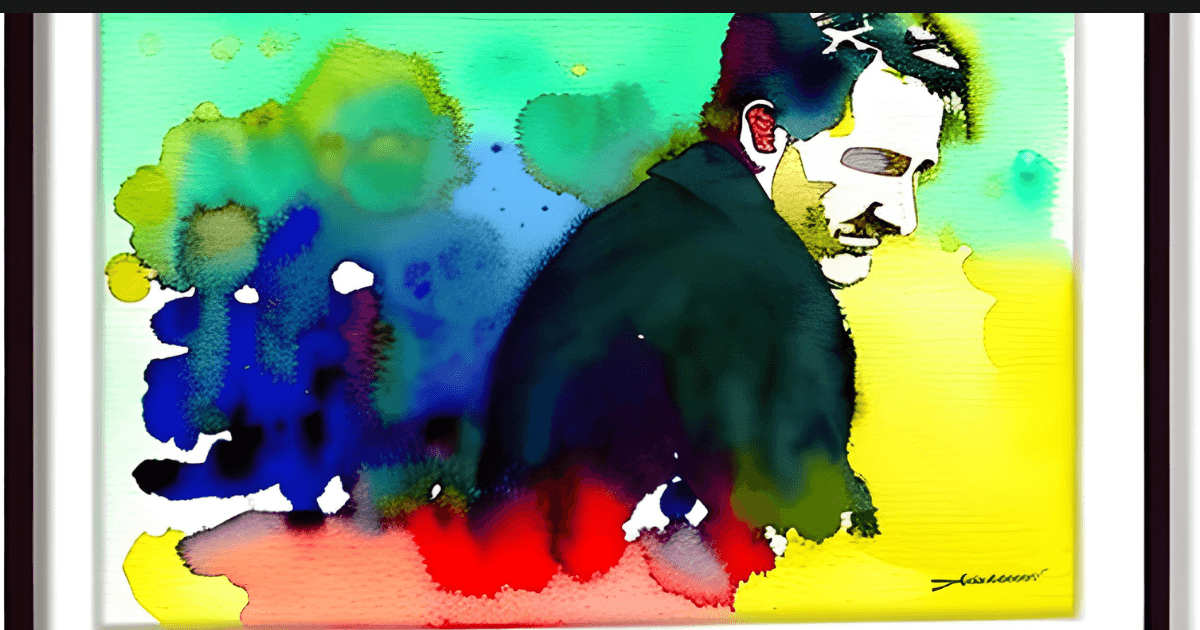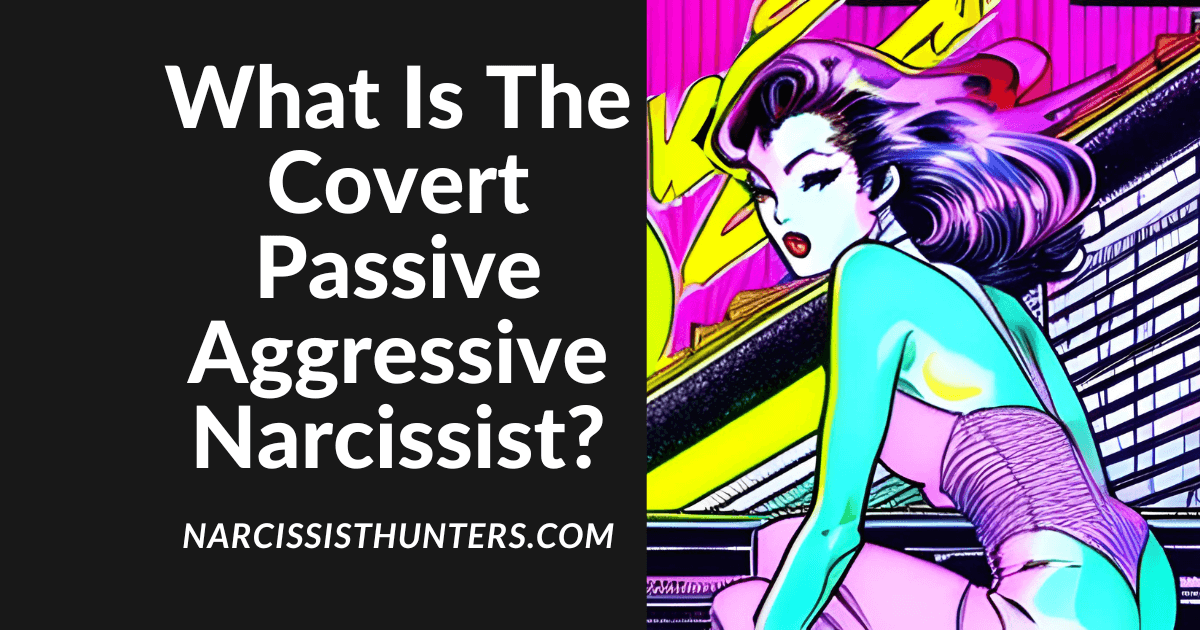Have you ever felt like someone in your life is constantly undermining you, making snide remarks, or giving you the silent treatment? You might be dealing with a covert passive aggressive narcissist. In this article, we will explore the characteristics of this toxic behavior pattern, the impact it can have on your mental health, and strategies for coping with and communicating with a covert passive aggressive narcissist.
Narcissism is a term used to describe a personality disorder in which an individual has an excessive sense of self-importance, a strong need for admiration, and a lack of empathy for others. Passive aggression, on the other hand, refers to a behavior pattern characterized by indirect resistance to demands, requests, or expectations.
Covert narcissism is a type of narcissism in which an individual displays traits of narcissism, but in a more subtle and less overt way. While they may appear to be shy or introverted, covert narcissists are just as focused on themselves as their more overt counterparts, and they can be just as damaging to those around them.
What is Covert Passive Aggressive Narcissism?

Covert passive aggressive narcissism is a combination of covert narcissism and passive aggression. Individuals who display this behavior pattern may not show their narcissistic traits directly, but instead use passive aggressive tactics to assert their dominance and control over others. This can make it difficult to identify the behavior and to understand the underlying motivations of the individual.
In this article, we will explore covert passive aggressive narcissism in more detail, including its characteristics, how to identify it, its impact on relationships, and how to cope with it.
What is a covert passive aggressive narcissist?
Covert passive aggressive narcissism is a behavior pattern characterized by indirect resistance, manipulation, and emotional abuse, used to control others while maintaining an appearance of shyness, victimhood, or insecurity. Here are some of the key characteristics of a covert passive aggressive narcissist:
- They have an exaggerated sense of self-importance and are highly focused on their own needs and desires.
- They use passive aggressive behavior as a way to manipulate and control others, rather than being direct and assertive.
- They may appear to be shy, insecure, or vulnerable, but are actually highly self-absorbed and focused on maintaining their sense of power and control.
- They lack empathy for others and often dismiss or belittle their feelings and needs.
- They may engage in gaslighting, in which they manipulate others to doubt their own perceptions and reality.
Examples of covert passive aggressive behavior
- Making snide or sarcastic comments that appear innocent on the surface, but are intended to belittle or undermine others.
- Giving backhanded compliments or compliments with a hidden insult.
- Refusing to communicate directly or honestly, but instead using subtle hints or body language to express their displeasure or frustration.
- Playing the victim or martyr to gain sympathy and control over others.
- Withholding affection or attention as a way to punish or control others.
- Sabotaging others’ success or progress behind the scenes, while maintaining a facade of support.
It’s important to note that covert passive aggressive narcissists may not display all of these characteristics, and that their behavior can be difficult to identify, even for those who are close to them. Understanding the patterns of behavior and motivations of a covert passive aggressive narcissist is key to recognizing their behavior and protecting oneself from their manipulations.
How to identify a covert passive aggressive narcissist?

Identifying a covert passive aggressive narcissist can be challenging, as they often conceal their behavior and present themselves in a way that appears innocent or harmless. Here are some signs and symptoms to look for:
1. Indirect communication
Covert passive aggressive narcissists tend to communicate indirectly, rather than being direct and clear. They may use sarcasm, subtle hints, or nonverbal cues to express their displeasure or frustration.
2. Emotional manipulation
Covert passive aggressive narcissists often use emotional manipulation to control others. They may play the victim, use guilt or shame to elicit a response, or withhold affection or attention as a form of punishment.
3. Lack of empathy
Covert passive aggressive narcissists tend to lack empathy for others and may dismiss or belittle the feelings and needs of those around them.
4. Inconsistent behavior
Covert passive aggressive narcissists may appear inconsistent in their behavior, showing one side to some people and another side to others. They may act kind and supportive to some people, while being critical and dismissive to others.
5. Superiority complex
Covert passive aggressive narcissists may have a sense of superiority or entitlement, believing that they are better than others and deserve special treatment.
Comparison to other types of narcissists
Covert passive aggressive narcissism can be difficult to distinguish from other types of narcissism, such as overt narcissism and malignant narcissism. One key difference is that covert narcissists tend to be more subtle and indirect in their behavior, while overt narcissists are more grandiose and attention-seeking. Malignant narcissists are also more overtly hostile and aggressive in their behavior.
Red flags to watch out for in relationships
If you suspect that someone you are close to may be a covert passive aggressive narcissist, watch out for the following red flags:
- They frequently make you feel confused or unsure about your own perceptions and reality.
- They often belittle or dismiss your feelings and needs.
- They frequently engage in passive aggressive behavior, such as giving backhanded compliments or withholding affection or attention.
- They may appear kind and supportive in public, but act dismissive or critical when you are alone together.
- They seem to enjoy playing the victim and seeking sympathy or attention from others.
- They frequently shift blame or refuse to take responsibility for their actions.
Recognizing these red flags can help you identify and protect yourself from covert passive aggressive narcissists.
The impact of covert passive aggressive narcissism

Covert passive aggressive behavior can have a significant impact on the mental health and well-being of those who are targeted by it. Here are some of the ways that covert passive aggressive behavior can harm victims:
- Anxiety and stress: Victims of covert passive aggressive narcissism may experience anxiety and stress due to the uncertainty and confusion caused by indirect communication and manipulation.
- Low self-esteem: Covert passive aggressive behavior can make victims feel invalidated and ignored, leading to feelings of low self-esteem and self-doubt.
- Emotional trauma: Long-term exposure to covert passive aggressive behavior can result in emotional trauma, including depression, anxiety disorders, and post-traumatic stress disorder.
- Difficulty trusting others: Victims of covert passive aggressive narcissism may struggle to trust others, due to the gaslighting and manipulation they have experienced.
- Isolation: Covert passive aggressive behavior can lead to feelings of isolation and loneliness, as victims may feel like they cannot share their experiences with others.
Examples of how covert passive aggressive behavior can harm relationships
- Undermining trust: Covert passive aggressive behavior can erode trust in relationships, as victims may feel like they are being lied to or manipulated.
- Creating resentment: Covert passive aggressive behavior can create resentment in relationships, as victims may feel like they are being unfairly punished or ignored.
- Hindering communication: Indirect communication can make it difficult to have open and honest communication in relationships, leading to misunderstandings and conflicts.
- Damaging intimacy: Covert passive aggressive behavior can damage intimacy in relationships, as victims may feel like they are being shut out or rejected.
- Driving away support: Covert passive aggressive behavior can drive away support and caring from loved ones, as victims may feel like they cannot rely on others to understand their experiences.
Long-term consequences of covert passive aggressive narcissist behavior
If left unchecked, covert passive aggressive behavior can lead to long-term consequences for both the narcissist and their victims. The narcissist may continue to struggle with intimacy and communication in relationships, while victims may experience ongoing emotional trauma and difficulty trusting others.
Seeking therapy and support can be helpful for both the narcissist and their victims to address these long-term consequences and work towards healing and growth.
Coping with a covert passive aggressive narcissist
Coping with a covert passive aggressive narcissist can be challenging, but there are strategies that can help protect oneself and improve communication in the relationship.
- Set clear boundaries: Setting clear boundaries can help protect oneself from covert passive aggressive behavior. This includes stating what behaviors are not acceptable and what consequences will follow if those boundaries are crossed.
- Focus on facts: When communicating with a covert passive aggressive narcissist, it can be helpful to focus on facts rather than emotions. This can help to avoid gaslighting and manipulation.
- Stay calm: Covert passive aggressive behavior can be frustrating and upsetting, but it is important to stay calm and avoid getting drawn into arguments or emotional manipulation.
- Seek support: Seeking support from trusted friends or a therapist can help victims of covert passive aggressive behavior to feel less isolated and alone.
- Consider professional help: In some cases, it may be necessary to seek professional help to address the impact of covert passive aggressive behavior on one’s mental health and well-being. A therapist can help victims to work through their emotions and develop healthy coping strategies.
When to seek professional help
If the impact of covert passive aggressive behavior on one’s mental health and well-being is significant, it may be necessary to seek professional help.
This can include therapy or counseling to work through emotions and develop healthy coping strategies. In some cases, it may also be necessary to consider ending the relationship if the behavior continues despite efforts to address it.
Ultimately, the most important thing is to prioritize one’s own mental health and well-being, and to seek help and support when needed.
Final Thoughts
In this article, we discussed the topic of covert passive aggressive narcissist, which can be a challenging and harmful behavior pattern for those who are targeted by it.
We defined what covert passive aggressive behavior is, and discussed its characteristics, as well as the impact it can have on victims’ mental health and well-being. We also provided tips for identifying and coping with a covert passive aggressive narcissist, including setting boundaries, focusing on facts, and seeking support when needed.
In conclusion, it is important to recognize that covert passive aggressive behavior can be harmful, and that victims of this behavior may need support and assistance to cope with its impact.
If you suspect that you or someone you know may be in a relationship with a covert passive aggressive narcissist, we encourage you to seek help and support from trusted friends, family members, or a mental health professional. Remember, prioritizing your own mental health and well-being is key to living a healthy and fulfilling life.
